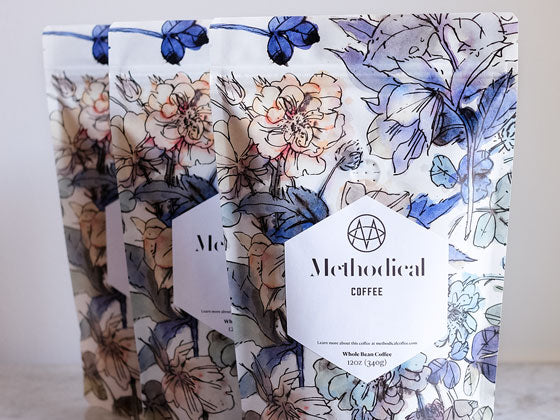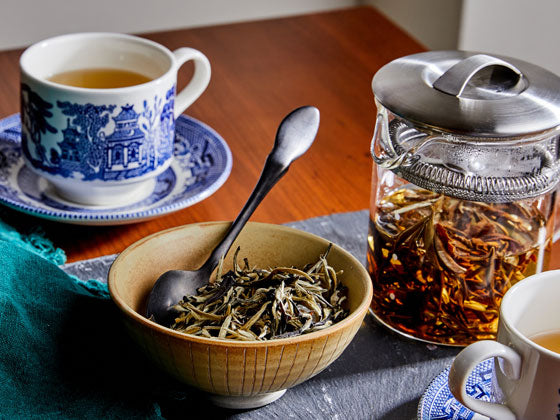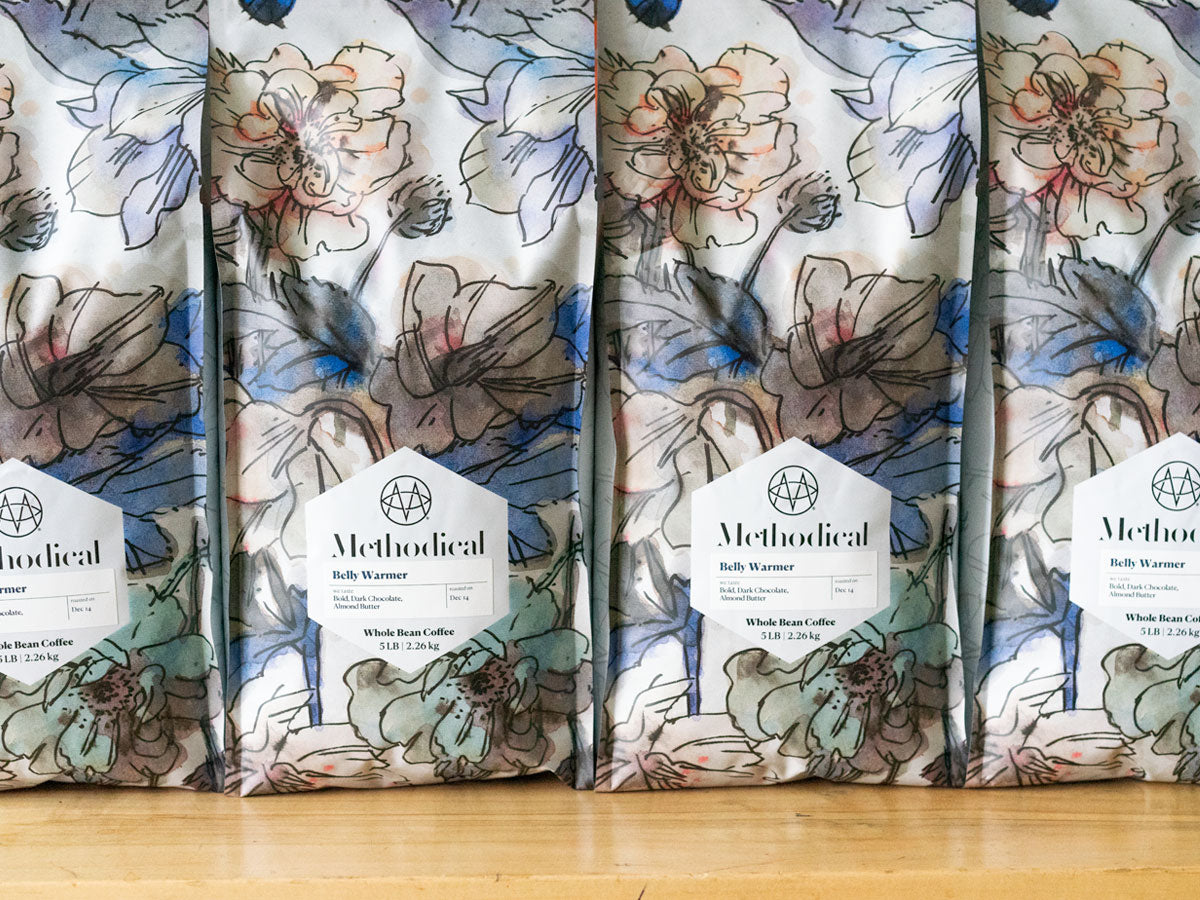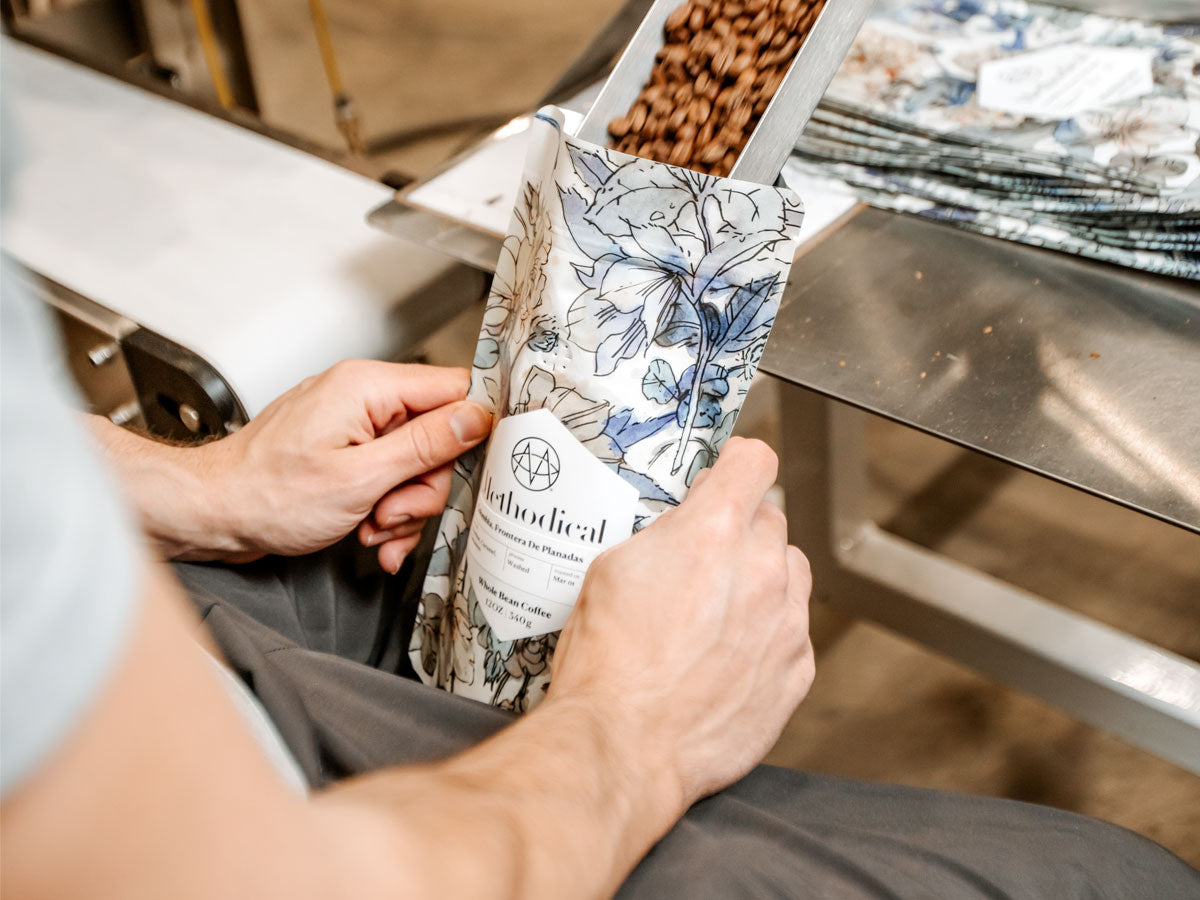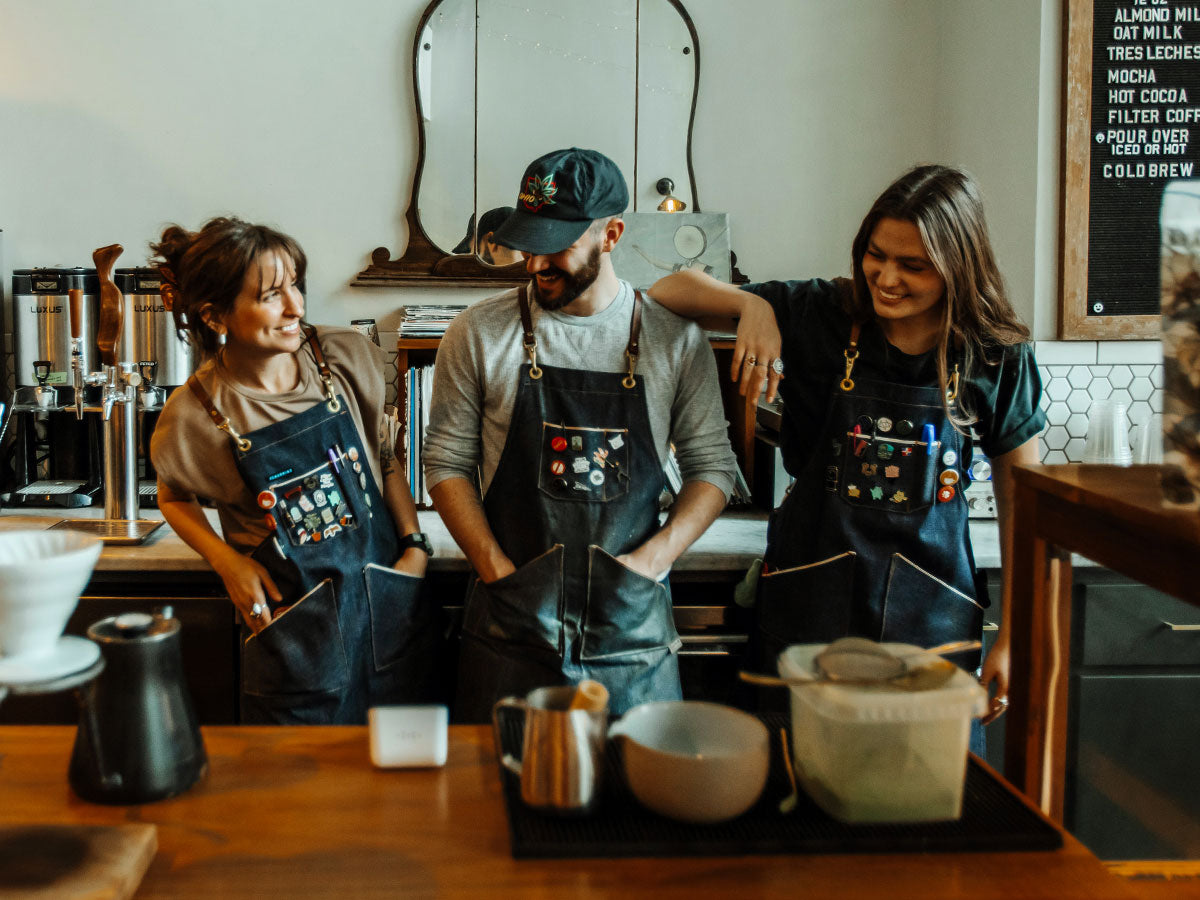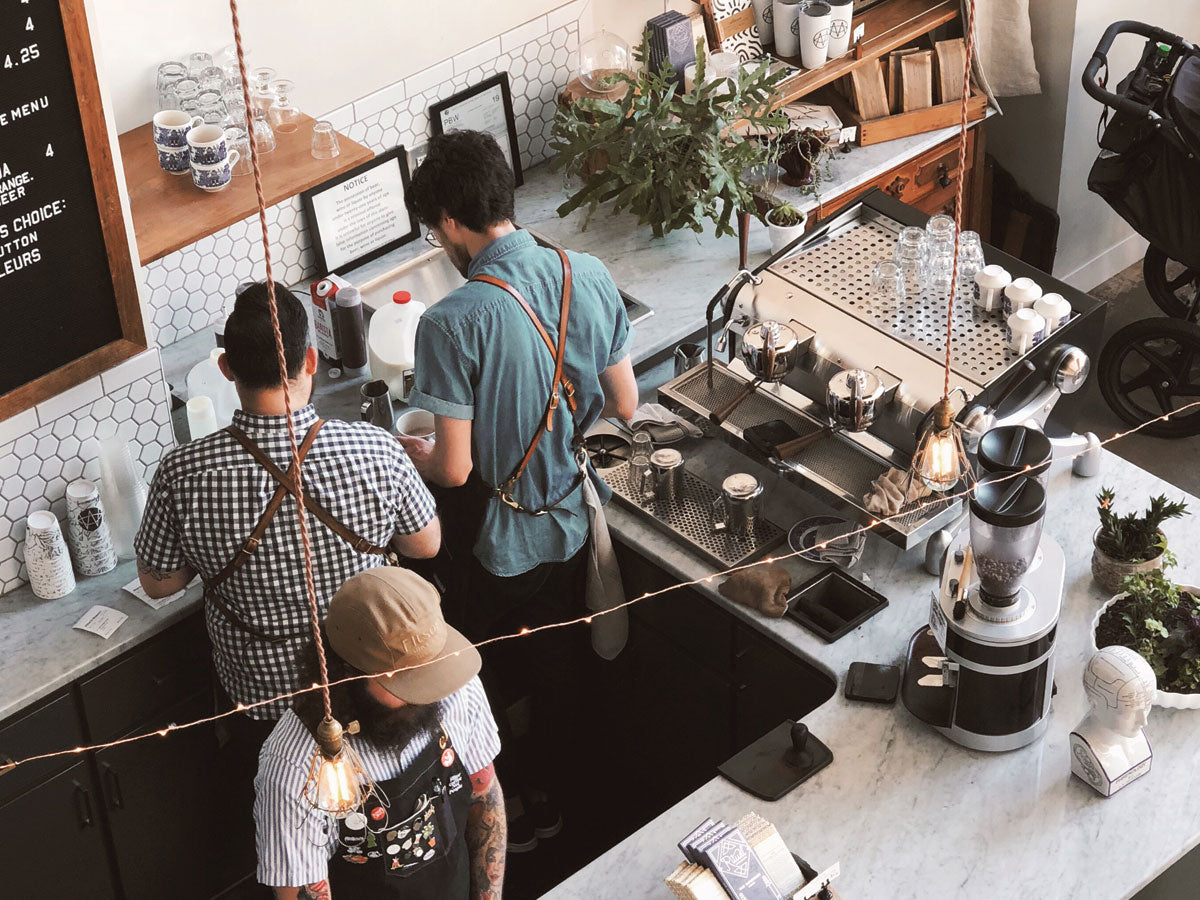If you own or operate a coffee shop, cafe, restaurant, office, hotel, or church, chances are coffee is either an essential offering or crucial amenity. As you start your search for a wholesale coffee partner, you’ll initially be looking for a coffee your customers will love, then it gets a little more complicated as you get into how much coffee will you need, what is a good price, whole bean or ground, who can keep up with your demand.As a coffee wholesaler who serves a wide variety of customers, we are here to answer your questions and share our advice for sourcing coffee in bulk.
What is wholesale coffee
In short, a coffee wholesale partner is a roaster or distributor that sells coffee in bulk, at a reduced price, so you have the margin to markup for retail or include as a perk at your hotel or office.
Most roasters build a price tier into their pricing model to offer businesses who want to buy coffee beans in bulk. This price tier is typically somewhere between 40-50% off retail price. And this pricing tier is offered exclusively to businesses who plan to regularly place bulk sized orders. Even though the price is lower, the wholesaler still makes a profit because the effort to make and fulfill that order is lower than making and fulfilling multiple smaller orders. It’s a win-win situation. That margin also allows the reseller to mark up the product to resell it or use it to produce other products, such as a cafe using bulk coffee to produce cappuccinos and lattes.
Getting started with wholesale coffee
There’s more decisions than you’d think when deciding on a coffee bean wholesale supplier. More than just their price list, you’ll want to know where they source their coffee, the quality of the coffee, whether their offerings will change, and what sizes and formats they offer.
Sourcing coffee
One thing to be aware of when deciding on your coffee bean supplier is how they source their coffee. There are several different ways roasters can source their coffee: direct from the farm, through an importer, or a green coffee market. Specialty coffees, coffees that score a quality grade of at least 80 points, offer complete transparency all the way back to where the coffee was grown, how it was cultivated, how it was processed, and how everyone was compensated all along the way. This information is good for you to know so that you know where your product comes from, how the people involved were treated, as well as the level of quality of the beans you’re purchasing.
Coffee types
Coffee is an agricultural product, which means it has seasonality. This means that some of the single origin coffees you taste and love may not be available all year around. To solve this, roasters create blends that are built around a flavor profile. This way if a coffee used in a blend runs out, they can replace it with a comparable coffee to maintain the flavor profile and keep up with demand. So when deciding on a coffee for your business, make sure that what you select will be available year around and the roaster will be able to keep up with your demand.
Learn more about coffee blends and single origins.
Bulk sizes and formats
Roasters often offer coffee in several sizes. We offer 12oz, 2lb, and 5lb sizes and most roasters offer variants in similar increments. 5lbs is often the largest a roaster will offer as sizes larger than that become difficult to handle. Roasters may also offer their coffee whole bean, ground, or in frac packs. A frac pack is pre-ground coffee in a pouch that is sized to brew one pot of coffee. This is very convenient as there’s no need to weigh or grind your coffee. But if the quality of flavor is at the top of your list, then nothing beats buying coffee whole bean and grinding it right before brewing. Once ground, coffee begins to oxidize and slowly loses flavor.
Learn more about how long coffee lasts.
How to order coffee in bulk
There are a few more details to consider in your coffee supplier journey like a good ordering cadence, what your offerings should be, and payment terms.
How much coffee should I buy?
Figuring out how much coffee to order takes a bit of guesswork. If your business serves coffee brewed in coffee makers, you can expect to get around 113 12oz cups of coffee out of a 5lb bag. If you’re serving espresso at 18 grams of coffee per shot, you can expect to get 126 shots out of a 5lb bag. When ordering, we recommend getting in the rhythm of placing weekly orders. This cadence will help keep your coffee fresh and prevent you from sitting on too much inventory which isn’t good for cash flow. This should also help your roaster anticipate your order. We have had customers forget to place their weekly order which we were able to catch and remind them, preventing them from running out during a busy weekend.
Another strategy to prevent you from running out without overstocking is buying smaller 12oz bags along with your bulk bags. These are great for reselling but also serve as your reserves if you end up selling more coffee than you anticipated.
What type of coffee should I buy?
As we mentioned earlier, keep seasonality in mind when selecting your coffees. Bringing in a rotating selection is great if you have repeat buyers that are looking for something new and different. But you’ll also want to find a staple or house coffee to serve as your primary go-to. This should be a coffee that is available year round and your roaster won’t have trouble consistently providing. Decaf is also something you should consider, especially if you’re a restaurant serving customers in the evening.
Learn more about the differences between light, medium, and dark roasts.
Private label is something we offer our wholesale customers—custom-branded packaging gives them a custom product their customers can take home and gives them a unique touch, elevating their customer experience.
Which coffee brew method is best for my business?
Whether self-service, counter service, or table service, brewing large pots of coffee with a commercial brewer will give you the best bang for your buck. Large brewers are easy to operate, easy to maintain, and are reasonably priced. Brewing coffee with a large commercial brewer is a great option for cafes, restaurants, churches, offices, and for hotel lobbies.
Some restaurants or offices that want to offer an elevated experience can offer manual brew methods such as french press or chemex.
But if you’re a cafe or coffee shop, it’s hard to beat a good espresso. If coffee is a primary offering of your business, then investing in a commercial espresso set up will be worth the investment.
Pricing and payment terms
A lot of roasters will offer terms once a relationship has been established. Invoices will come due after 2 weeks for NET15 terms or one month for NET30 terms. This is very helpful for cash flow. Vaulted payments is another option where a customer’s credit card is kept on file and automatically charged on the agreed upon term, either NET15 or NET30. This is helpful in keeping customers up-to-date and avoiding any sudden forgotten about invoices.
What to look for in a coffee wholesale partner/coffee supplier
Just like any relationship, you want to learn as much as you can at the onset in order to avoid any unwelcome surprises later on. It’s not uncommon to ask for references. Ask to speak to several other active wholesale partners to hear their perspective. One of the things to look for is whether you’ll be treated the same as an active customer vs a potential customer. Sales people can be convincing, but they shouldn’t oversell and under-deliver. The relationship with your wholesale partner should be more than just transactional. They should feel like your ally, confidant, advisor, and cheerleader. At Methodical, we strive to provide consistent, quality, and fairly-priced coffee and tea to our wholesale customers, but we also aim to build relationships. Coffee is best enjoyed with others and we aim to practice that with our wholesale partners. Learn more about our wholesale program.
You might also like:

